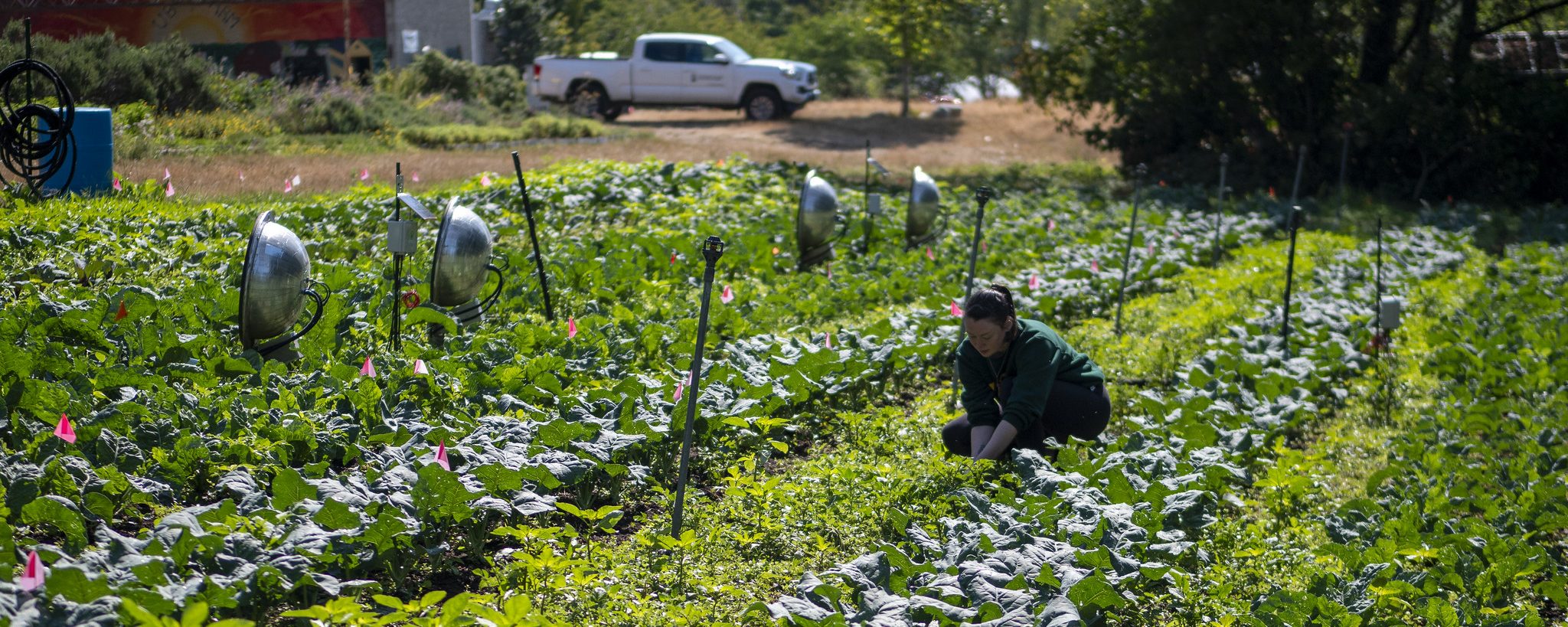Hire a student
Are you an employer who’s interested in hiring motivated, energetic students to help your organization accomplish its goals? Are you intent on helping to shape, inspire and mentor the next generation of problem-solvers? Our students bring fresh ideas, energy and knowledge to your organization — and they’ll help you get to where you want to go.
Connect with our researchers
Quicklinks: Animal Welfare Program, Dietetics, Plant-Insect Ecology and Evolution Lab, Plant-Pollinator Global Change Lab, Sustainable Agricultural Landscapes (SAL) Lab
Animal Welfare Program
The Animal Welfare Program aims to provide the dairy industry with knowledge-based solutions to welfare challenges by training young scientists with a passion for the industry and specific expertise on key issues of the day. Much of our current research is concentrated on the effects of management and housing on the health and welfare of calves and cows.
Contacts:
- Jennifer Heinsius, PhD Student: heinsiusjl@gmail.com
- Topic: Training dairy heifers
- Christina Doelling, MSc Student: Crdoelling@gmail.com
- Topic: Personality and training with dairy calves
- Elizabeth Russel, PhD student: elizabethrussell.ds@gmail.com
- Topic: Dairy calf rearing on commercial dairy farms
- Emeline Nogues, PhD: emeline.nogues@ubc.ca
- Topic: Social behaviors of dairy cattle
- Malina Suchon, PhD student: malina.suchon@gmail.com
- Topic: Effects of environment on dairy calves’behaviors
Dietetics
UBC’s Dietetics program prepares you for entry into an in-demand profession, at a level that readies you to meet national accreditation standards. Dietitians aim to improve and promote health through optimized food and nutrition choices, and fill a variety of different roles in nutrition care, management, or population and public health. Our graduates are highly employable in a diverse range of roles, many within the ever-expanding health care system.
Undergraduate Dietetics program: link.
Graduate/Master of Nutrition and Dietetics program: link.
Contact:
- Gerry Kasten, Lecturer, Dietetics: gerry.kasten@ubc.ca
Plant-Insect Ecology & Evolution (PIEE) Lab
The PIEE lab aims to answer fundamental questions in ecology and evolutionary biology. Our current projects include topics in pest management, plant defences against herbivory, multi-species interactions, pollinators and more.
For one of the projects, co-supervised by Juli Carrillo (UBC), Todd Kabaluk (AAFC) and Michelle Franklin (AAFC), researchers analyzed decades of pest monitoring and weather records from the Lower Mainland to understand how climate affects long-term population levels and dates of key management events. Insect levels and crop losses are expected to rise alongside the warming climate. However, the effects may be species dependent, affecting our ability to predict crop-specific risks. Canada is the second largest producer of cultivated cranberries globally. The blackheaded fireworm is a major cranberry pest and has a long monitoring history in British Columbia (BC), Canada.
Contact:
- Kelly Wang, MSc Student in Plant Science: kelly.wang@ubc.ca
Plant-Pollinator Global Change Lab
The Plant-Pollinator Global Change Lab is investigating the dynamics of plant interactions with their biotic and abiotic environments. Our research focuses on understanding how plants and their associated communities (such as pollinators and herbivores) are responding and adapting to the substantial challenges posed by global environmental changes, particularly those in agro-ecosystems. Current projects include evaluating the impacts of new agricultural technologies on the large-scale distribution of pollinator communities, measuring the ecosystem services provided by pollinators and predatory insects, and investigating habitat amendments’ ability to provide nesting sites for wild bees in agro-ecosystems.
Contact:
- Sarah Knoerr: sknoerr@student.ubc.ca
- Risa Sargent: risasargent.landfood.ubc.ca
Sustainable Agricultural Landscapes (SAL) Lab
With an ever-changing climate condition amidst the climate crisis we are currently facing, we need to work towards a more sustainable production system. Aside from contributing less to Greenhouse Gas Emissions, we need to start adapting new practices that help mitigate losses from extreme variable weather that comes with the climate change crisis. In the Sustainable Agricultural Landscapes lab, not only are we monitoring the greenhouse gas emissions of conventional practices, but we are also actively testing sustainable practices for their impacts on emissions and climate resilience.
Contact:
- Alan Lee, SAL Research Lab Coordinator: alan.lee@ubc.ca
